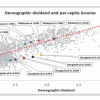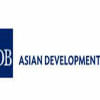Another alarm rings over banks' condition

Bangladesh's banking system has been put on "negative watch" by the global ratings agency, Moody's Investors Service, despite the country's impressive economic performance and strong economy. The downgrading comes in the wake of worsening asset quality, according to one of its analysts, caused by underlying weakness in corporate governance within the banking sector, which led to non-performing loan ratios to increase to 10.4 percent as of June.
Earlier this year, three global rating agencies—Moody's, Standard & Poor's and Fitch—had identified poor governance standards and weak financial health as significant risk factors for the country's banking sector. Something that experts here have been warning the authorities of, along with greater risks to the wider economy as a result, without success. Even after years of mismanagement and corruption in the sector, which saw the government giving around Tk 13,660 crore of taxpayers' money in handouts to the ailing banks between 2011 and 2018, nothing, it seems, has changed.
Meanwhile, as Moody's pointed out, the worsening asset quality will lead to credit costs rising. Meaning that the average person will now have to deal with the double whammy of borrowing at higher costs and have taxpayer money doled out to troubled banks. State-owned banks, moreover, despite the massive bailout money they have been given over the years, will "remain undercapitalised" and "dependent" on capital infusion from the government, all because the regulating authorities have failed for years on end to address the root problems that have plagued the sector.
As repeated in this column, in order to prevent a real disaster in our banking sector, the regulators immediately need to do their job of enforcing banking rules, instead of making "exceptions" for special interests. For that, the government at large needs to depoliticise the sector, as enforcing rules for the rich and the powerful will require the type of political will that we, unfortunately, are yet to see.

 For all latest news, follow The Daily Star's Google News channel.
For all latest news, follow The Daily Star's Google News channel. 








Comments